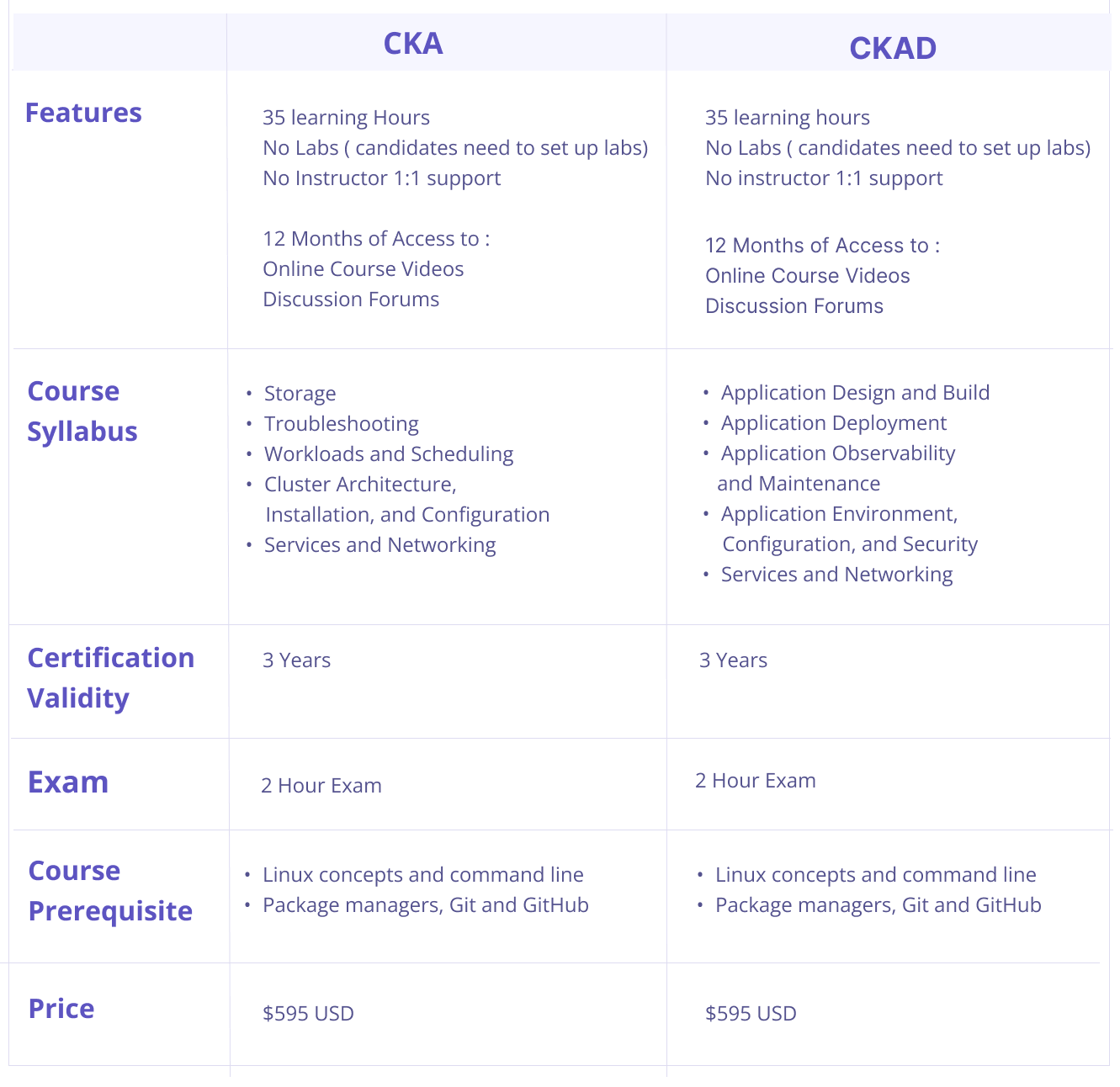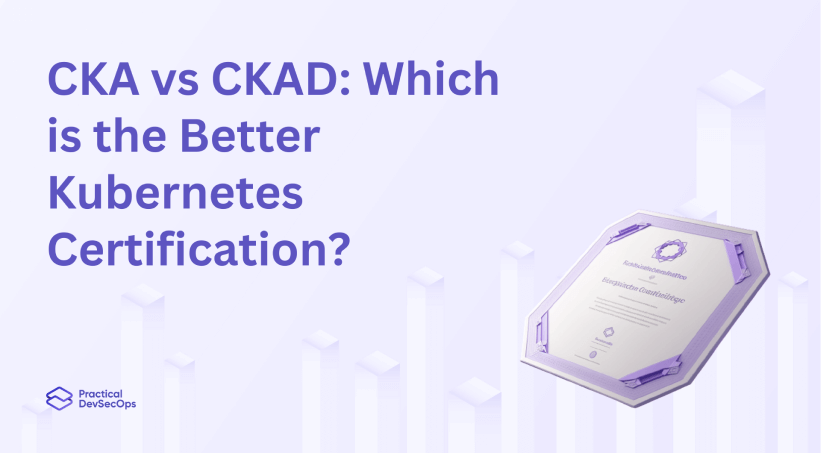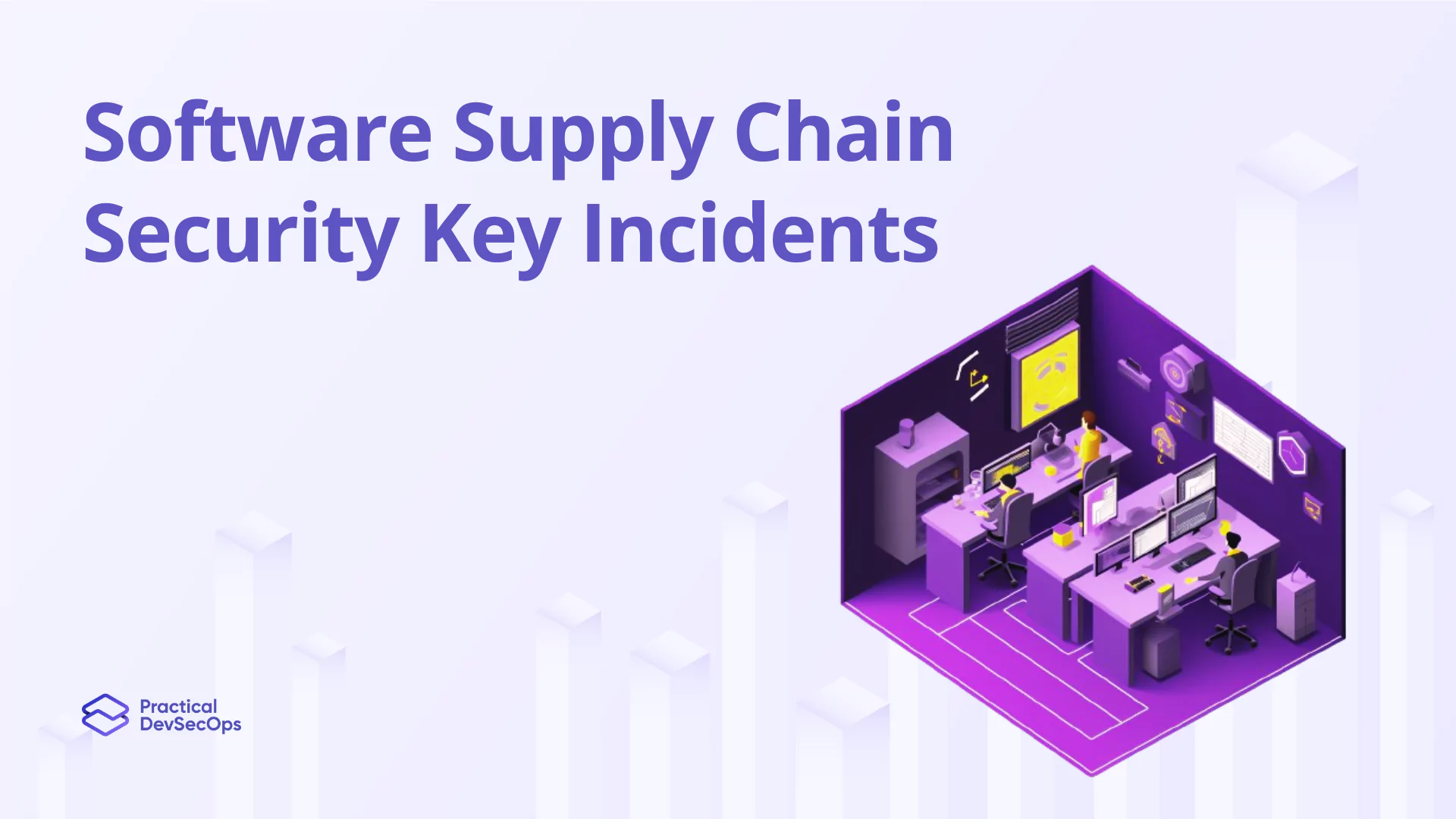In the wake of the surging popularity of Kubernetes, there is significant demand for experts who possess extensive knowledge of Kubernetes. This article compares CKA v/s CKAD to assist individuals in making informed decisions regarding which Kubernetes certification to pursue

CKA v/s CKAD: Which is Better Kubernetes Certification?
The main differences between the CKA v/s CKAD certifications are:
Targeted audience: CKA targets Kubernetes admins, cloud buffs, and tech pros. Meanwhile, CKAD’s perfect for those diving into cloud-native microservice apps, crafting, and sailing them into the digital ether.
Exam focus: The CKA certification challenges folks to tackle Kubernetes admin duties like cluster setup, updates, plus switching between networking, storage, and services. On the flip side, CKAD examines your skills in configuring, and showcasing cloud-native apps on Kubernetes.
Course content: Both certifications include the Kubernetes LFS258 course, but CKAD focuses on applications, while CKA covers administration.
Certification validity: Both certifications cost USD 595 and are valid for three years.
Exam duration: Both certifications have a 2-hour exam
Course prerequisites: Both certifications have the exact prerequisites, which are understanding of Linux concepts and command line, package managers, Git and GitHub.
Also Read, CKA vs CKS, What is the Difference
CKA – Certified Kubernetes Administrator
Looking to ace the Certified Kubernetes Administrator (CKA) exam? It’s designed for Kubernetes admins, cloud experts, IT pros, and more, focusing on key administrative skills like cluster setup, updates, and handling networking, storage, and services. The Linux Foundation’s LFS258 course is your go-to for the know-how needed, though you’ll DIY the labs with a guide.
At $595 for a three-year valid cert, it’s an investment in your future in the cloud!
Also read, Is CKS Certification Worth It?
CKAD – Certified Kubernetes Application Developer
Dreaming of diving into cloud-native app development? The CKAD (Certified Kubernetes Application Developer) certification is your ticket! It will test individuals in designing, building, and managing cloud-native applications on Kubernetes. Gear up with the Kubernetes Fundamentals LFS258 course from The Linux Foundation. It aims to prepare you for the CKAD exams.
With a fee of $595 and validity for three years, it’s a solid investment in your cloud-savvy future.
Conclusion
Selecting CKA or CKAD hinges on your Kubernetes focus: CKA for administration expertise, ideal for IT and cloud professionals, and CKAD for developers passionate about crafting cloud-native applications. Your career aspirations and interest in Kubernetes will guide your choice, ensuring you excel in your desired Kubernetes domain.






0 Comments